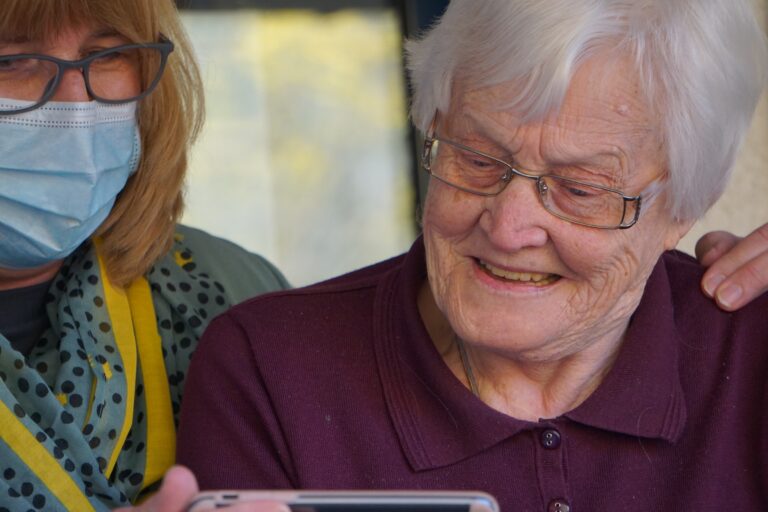It was not in the Treasurer’s speech on Budget night, but the nation’s volunteering activity is integral to the delivery of some of his Budget priorities.
Volunteers are everywhere across society but were nowhere in the Treasurer’s address. In recent years, volunteers have experienced high profile events – especially in response to crisis. Emergency volunteer fire fighters were on the front line in the 2019-20 Summer Bushfires. State emergency services (SES) volunteers have supported flood-affected communities. Throughout the COVID-19 pandemic, volunteers have provided emergency food relief, domestic violence services and emotional and mental health support.
The Budget focused on the paid workforce. The significant boost of investment in key priority workforces is much needed. This is about having more, well-trained and better paid professional staff in key government-funded services. But, alongside this focus on the paid workforce, consideration of the scale and value of the unpaid workforce is required, and attention given to the investment needed (for example, in training and managing volunteers) to enable volunteers to make their contribution.
Aged care and mental health services are two prime examples where volunteering activity supports the delivery of the Budget outcomes.
Aged care: Royal Commission called for greater support for volunteers
The last National Aged Care Workforce Census showed that volunteers are engaged extensively across aged care, with 83 per cent of residential facilities and 51 per cent of home care and home support programs engaging the services of volunteers.
Volunteers provide social support and companionship for older people in their own homes and in residential care settings, particularly for people who may have few visitors. They provide help with household or daily living activities, shopping, and transport.
The COVID-19 lockdowns made it all too clear that when volunteering programs stop, services are not delivered. Volunteers in aged care provide critical support to paid medical professionals, carers, and administrative staff. Volunteers contribute skills and experience, for example language and cultural skills, which add significant value to the support older people receive. Having this support disrupted diminished the care that elderly people received and increased the pressure on paid staff.
The findings of the Aged Care Royal Commission pointed to how volunteers are an integral part of the aged care workforce, and made recommendations to invest in volunteer support and management, for example through an increase in the Volunteer Grants program and investment in dedicated volunteer co-ordinators. The Australian Government has responded to the Royal Commission and set out its reform plan. This includes ‘accepting’ the recommendation urging greater support for volunteers working in aged care, but no mention was made of any additional investment.
Mental health: Volunteering data not available
Mental health is a further flagship budget reform where volunteers play a vital role. The Government’s National Mental Health Workforce Strategy needs to address the breadth and diversity of the mental health workforce, including volunteers who work alongside paid workers, peer workers and carers, as set out in Principle 8 of Charter 2020.
Some mental health services, for example Lifeline, rely heavily on volunteers to deliver services. Each year, Lifeline trains over 1,000 new volunteer crisis supporters, equipping them with mental health first aid skills.
As Mental Health Australia has argued, it is critical that the community mental health capability is strategically considered and supported, and that the National Mental Health Workforce Strategy does not focus solely on the traditional clinical workforce.
This should start with understanding the numbers of volunteer workers supporting mental health services for which data is not currently available. The $117 million allocated in the Budget to establish an evidence base for Australia’s mental health system needs to include understanding the full breadth of the workforce, and this includes volunteers.
Volunteering is relevant to mental health beyond workforce concerns. A substantial and growing evidence base demonstrates the individual wellbeing benefits of volunteering. The act of volunteering can play an important role in sustaining good mental health and in supporting mental health recovery journeys. Yet, the Budget provided no investment in promoting volunteering to groups that might benefit, for example young unemployed people. There was no mention in the Budget of a national youth volunteering initiative – a proposal put forward by the volunteering sector.
And here’s the rub.
Many, disproportionately female, have not returned to volunteering yet
Volunteering has been in decline over the last decade. The latest ABS General Social Survey data showed the volunteering rate had declined from 36.2% in 2010, to 30.9% in 2014 and to 28.8% in 2019. The decline has been most evident for women, whose rate decreased from 33.0% in 2014 to 28.1% in 2019.
Then came COVID-19 and volunteering rates plummeted. ANU analysis showed the decline in volunteering during COVID-19 was substantial, with two in three volunteers (66 per cent) estimated to have stopped volunteering between February and April 2020. Female volunteers were more likely to have stopped volunteering compared to male volunteers.
As COVID-19 restrictions lifted, volunteering did not snap back. New data (released in April 2021) from the ABS Household Impacts of COVID-19 Survey estimated that nearly one in ten (9%) Australians stopped volunteering through an organisation or group in the last 12 months.
Volunteering participation rates have declined from one in four (26%) people pre-COVID (before March 2020) to one in five (21%) in the last 12 months. Women were disproportionately affected, with 20% of women who normally volunteer not currently volunteering because their activities have been cancelled or reduced, compared to 11% of men.
Volunteers need Budget recognition
If the Australian Government is to deliver on its Budget priorities, it should aim to address the decline of volunteering. Investing in paid workers in aged care and mental health is essential. Ignoring the contribution of volunteer workers, and failing to invest in the necessary volunteering support infrastructure, is a huge risk.
This week (17-23 May) we celebrate National Volunteer Week and acknowledge that it is time to ‘recognise, reconnect and reimagine’ volunteering in Australia. The role of volunteers needs to be explicitly recognised by Governments with dedicated investment to ensure volunteering is safe and sustainable into the future.
Other Budget Forum 2021 articles
Structural Changes, but No Sustainability Reset, by Miranda Stewart.
This Was an Election Budget on Steroids, by John Hewson.
Looming Tax Cuts Prevent Genuine Expenditure Reform, by Maria Racionero.
Australia’s Planned Patent Box: A Means of Stimulating Innovation? By Sonali Walpola and Tracy Wang.
Could It Pack a Punch? Maybe, but There’s a Lot at Stake: The Reactivation of the Corporate Collective Investment Vehicle, by Alex Evans.
Don’t Shoot in the Dark: Business Support in the Australian Budget, by Andrés Bellofatto, Begoña Dominguez and Jorge Miranda-Pinto.





Recent Comments